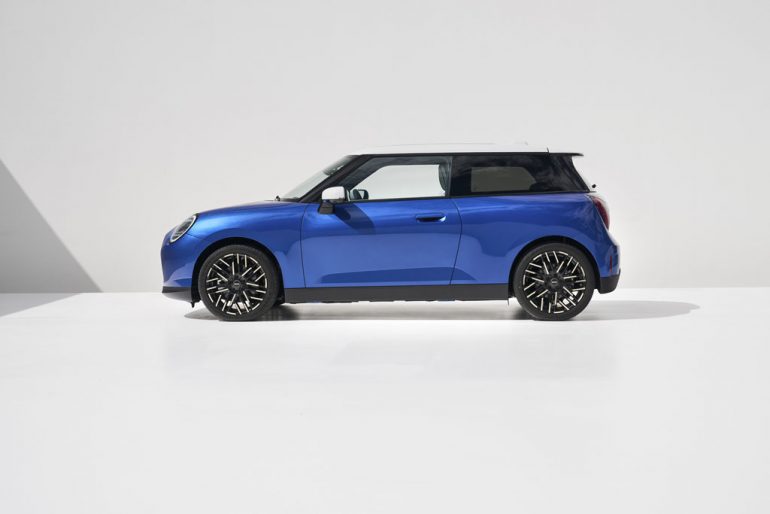
BMW has announced a significant investment of 600 million pounds (approximately $750 million) into its UK manufacturing plants with the goal of transitioning its Mini brand to an all-electric lineup by 2030. This announcement comes as a substantial boost to the British car industry, which has grappled with uncertainty surrounding Brexit in recent years.
Starting from 2026, BMW plans to produce two electric models at its Mini plant located in Oxford: the Mini Cooper 3-door and the compact crossover Mini Aceman. By 2030, the Oxford plant is expected to exclusively manufacture electric models, many of which will be destined for international markets, according to BMW’s production chief, Milan Nedeljkovic.
During a media briefing in Oxford, Nedeljkovic expressed BMW’s intention to source batteries made in Europe for these new Oxford-produced models, although the specific supplier’s location within Europe was not disclosed. The decision to procure batteries locally or abroad would depend on the market’s attractiveness for BMW’s battery suppliers.
Notably, the same two Mini electric models are also slated for production in China, with exports commencing in 2024. This demonstrates BMW’s commitment to expanding its electric vehicle portfolio on a global scale.
British business minister Kemi Badenoch voiced her support for BMW’s investment, emphasizing the government’s desire to strengthen the UK’s auto manufacturing industry, striving for it to be the best in the world. However, Badenoch refrained from commenting on the reported subsidy of 75 million pounds that BMW is expected to receive for its Mini production.
BMW’s investment will extend beyond the Oxford plant, encompassing its Swindon facility, which produces parts for Mini models. Regarding the future of the Hams Hall engine plant located near Birmingham, Nedeljkovic stated that it was too early to provide specifics.
The Mini brand, known for its small, nimble, and affordable vehicles, has maintained its popularity since its inception in 1959. BMW took over the brand in 2001, but its future in the UK has been uncertain, primarily due to concerns that Brexit might prompt BMW to shift production to other countries like Germany or China.
Despite BMW’s commitment to the UK, the automotive industry remains apprehensive about the implementation of post-Brexit “rules of origin.” These regulations stipulate that 45% of an electric vehicle’s value being sold in the European Union must originate from either Britain or the EU by 2024 to avoid tariffs. British business minister Kemi Badenoch voiced the industry’s concerns, emphasizing the need for more time to establish local capacity, arguing that tariffs on EU and UK-made cars would primarily benefit Chinese manufacturers.

Lloyd Tobias is a seasoned automotive journalist and passionate enthusiast with over 15 years of experience immersed in the world of cars. Whether it’s exploring the latest advancements in automotive technology or keeping a close pulse on breaking industry news, Lloyd brings a sharp perspective and a deep appreciation for all things automotive. His writing blends technical insight with real-world enthusiasm, making his contributions both informative and engaging for readers who share his love for the drive. When he’s not behind the keyboard or under the hood, Lloyd enjoys test driving the newest models and staying ahead of the curve in an ever-evolving automotive landscape.